Who hasn’t been jealous of their siblings? All those times they were allowed to go out after 7 p.m. while you’re stuck at home with your mom because you aren’t “old enough” to do anything else. Being constantly annoyed with your brothers and sisters — the competitive nature of it all — is the price you’re forced to pay for having siblings. And while parents are obliged to love all their children unconditionally and equally, the reality can sometimes be different.
As this woman shares in her story, she got the short end of the stick simply because her parents were “religiously and culturally” conservative. Meaning that while all three brothers were encouraged to reach for the stars — go to college, start a 401k career, perhaps, work their way towards Forbes’ “30 under 30” list — the only daughter was supposed to aspire to be the greatest stay-at-home-with-the-kids wife just like her own dear mother.
The author disobeyed her parents’ wishes and proved to them she is no less worthy of greatness than her own brotherly counterparts. The best part: she achieved everything on her own. And when her old folks reached out to her years later to do away with the resentment, the author asked only for one thing — to pay her back all the money she did not receive at the time of college, just like her brothers did.
Seeing how upset her parents were after her ultimatum, the author turned to the ‘Am I The [Jerk]‘ community to find out whether she hasn’t overplayed her own hand.
Sometimes parents’ vision for you and your future is completely different from what you have in mind, so you have to achieve everything with no support

Image credits: Hannah Olinger (not the actual photo)
So when these parents decided to make things up with their only daughter, they were met with an ultimatum they did not see coming
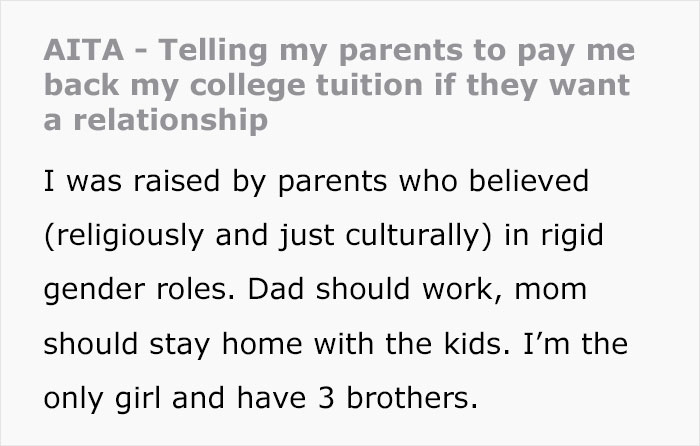
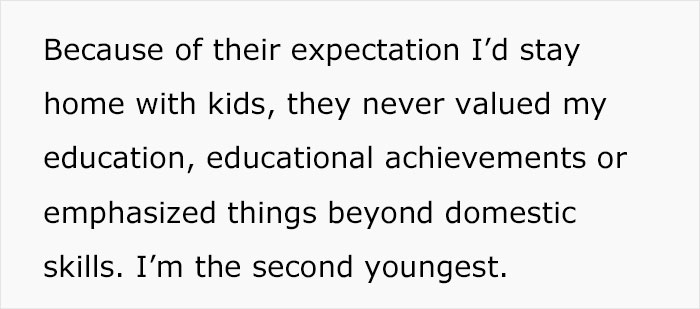
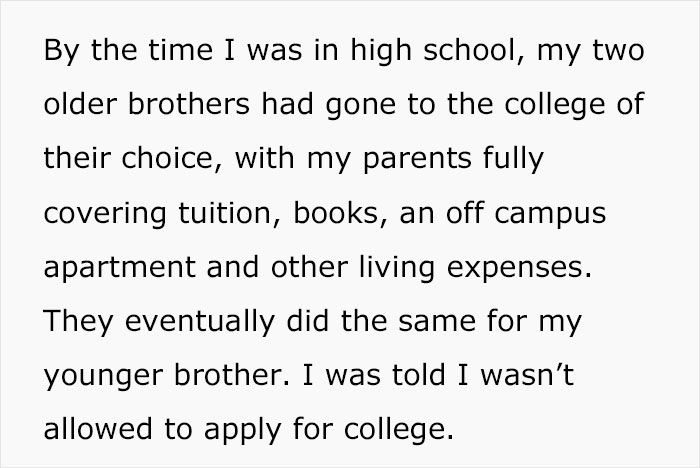
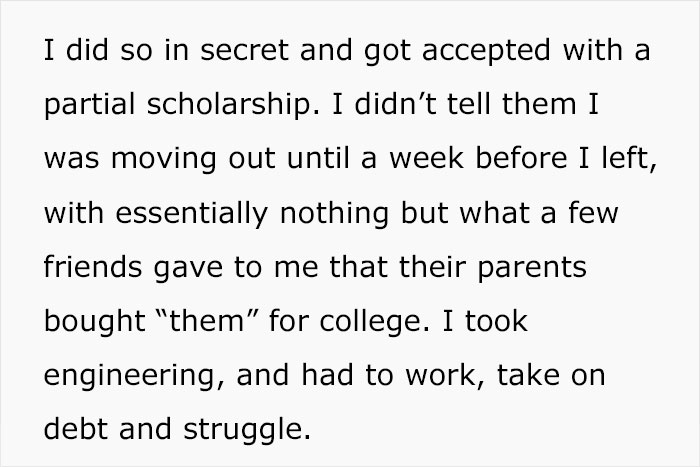



While the world is definitely moving in the right direction — industries (film, video games, tech, engineering) encouraging more and more women to become part of male-dominated enterprises; academic education that used to be a privilege only men were allowed (now, significantly outnumbered by women circa 1970) — recent studies showed that we’re still miles ahead from egalitarian society as brilliance, or in this case “children’s notions of intelligence and ability,” is thus far linked to gender. Unfortunately, it’s not difficult to guess which gender we all might be thinking about.
Wishing to learn more about how traditional gender roles in the family affect both boys and girls alike, Bored Panda reached out to Susan Marie McHale, the director of Social Science Research Institute at Penn State University who has spent decades focusing her research on family gender dynamics.
“In the ’80s when maternal work involvement was changing and there were some important developments happening in the department of gender — it became clear to us that one of the key dimensions of family life was gender roles,” McHale told us, explaining her fascination with family system dynamics. In one of McHale’s more famous papers titled ‘Family Patterns of Gender Role Attitudes,’ she was able to find out that families with parents who stick to traditional gender role attitudes tend to engage in more conflicts.
“It was a time — still is a time — when people were trying to figure out what works. It’s not like we have established models in the traditional family where you do this and I do that and this happens,” she explained. “But when the roles in the family are more well-defined, it’s a lot easier to find reasons for conflict. The families where gender roles were more egalitarian, however, proved to be more positively linked to adjustment.”
To explain this phenomenon further, McHale described an experiment in which boys in the traditional family setting were tasked with more-feminine household chores, like washing dishes or doing laundry. “Moms would ask for their boys to help out but fathers were very traditional. So the boys were caught between these two opposing forces with respect to their gender. And that led to them underperforming (likely) because of their father’s attitudes towards manliness and gender.”
A lot of folks showed support to the author and respected the way she approached giving her parents a clean slate
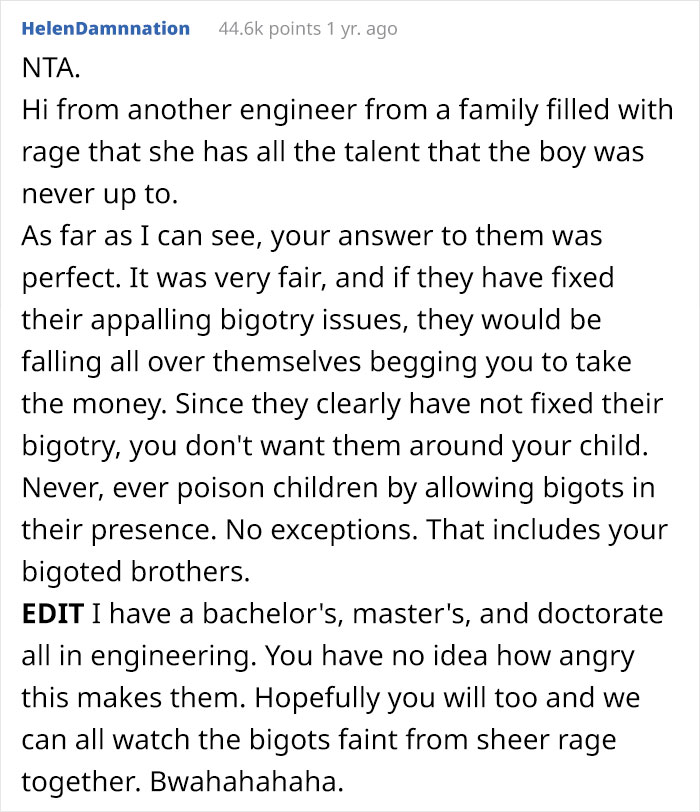
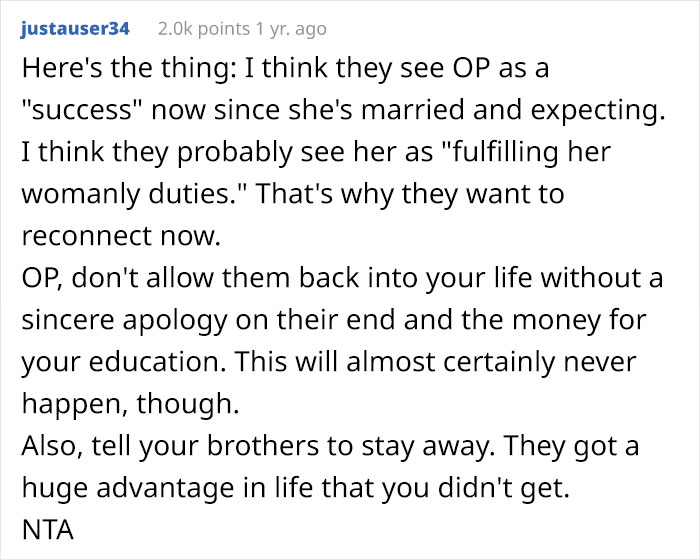


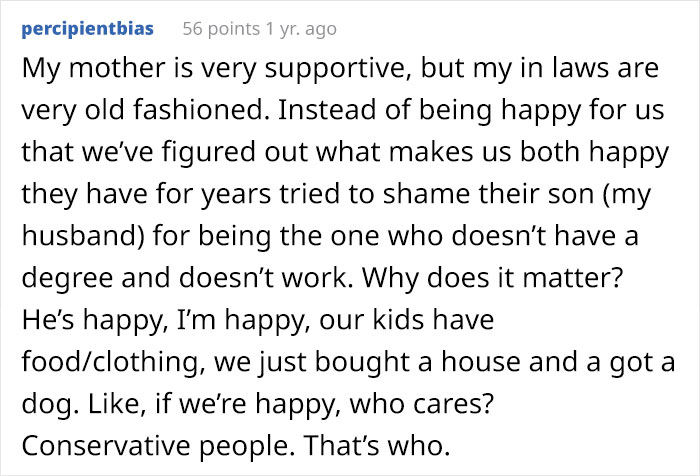



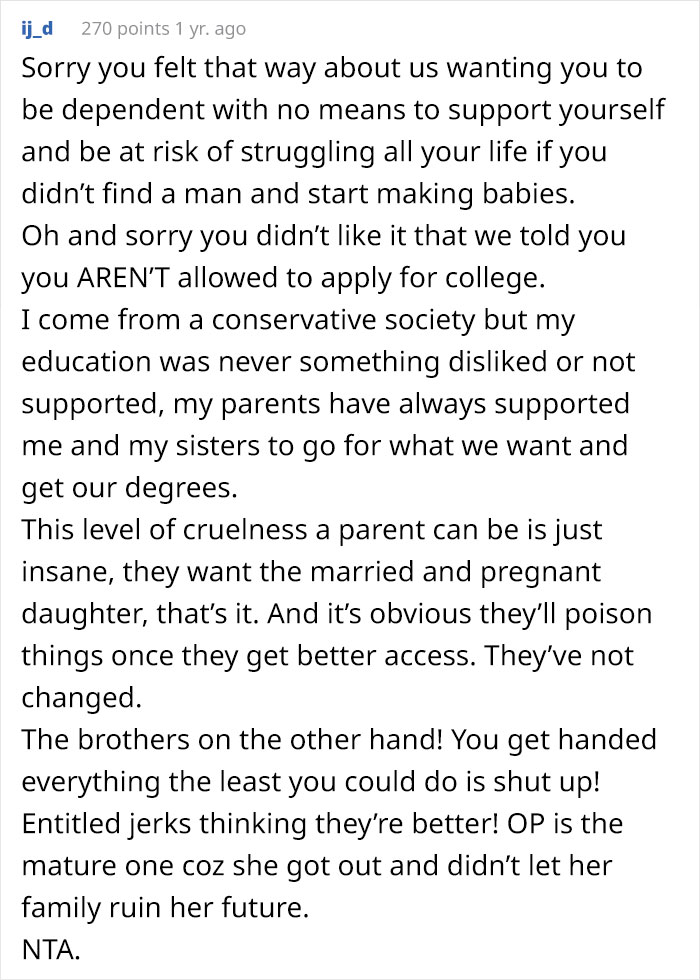


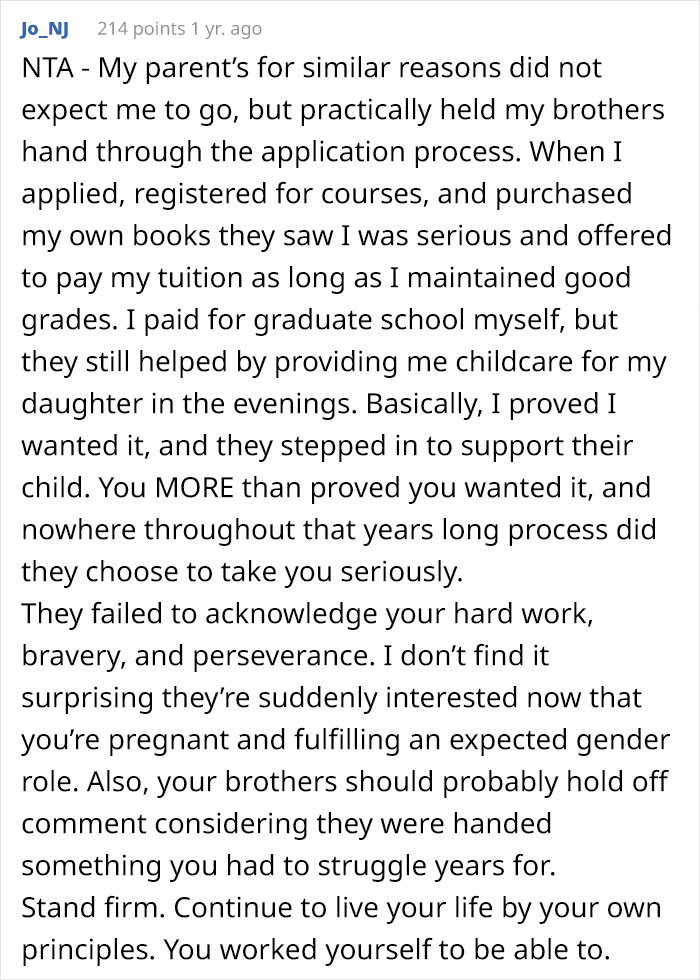
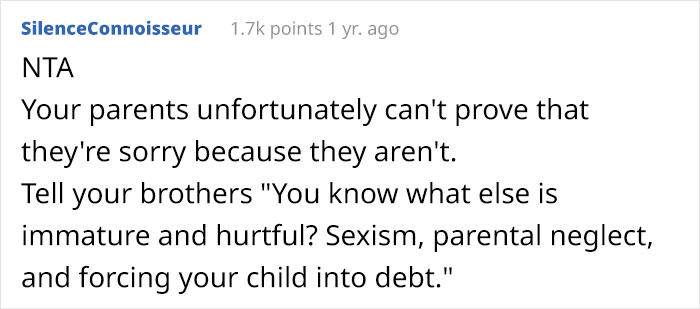

But some people thought that this apple didn’t fall that far from the tree and her expensive ultimatum shows just that



Although more research ought to be done in this area of study, according to McHale, one thing is clear for sure — siblings are an important factor when analyzing the effects of stereotypical gender roles in the family. “Kids are vigilant in how they monitor their parents’ treatment of them versus their brothers or sisters,” she told.
As you’d have guessed, seeing how differently you are being treated solely because of your gender — all the get-to-stay-later than you and act freely privileges — affects the relationship between siblings and one’s understanding of what’s possible or not. “In families with strict gender role norms, where boys get to do this and girls get to do that, implications for gender socialization and possible sibling conflict are reportedly higher,” McHale pointed out.
One key discovery she made through her research was that fathers who have firstborn daughters tend to have less traditional gender role attitudes. “As you know, girls mature earlier than boys. They have what we call ‘executive functions’ organized: they pay more attention and get things done. While boys, at least typically, are a couple of years behind girls,” McHale explained.
“So, you’ve got this dad who has this belief that girls aren’t as capable as boys, right? And they’re watching their firstborn daughter, who’s just way far ahead of her male counterparts.” The result? McHale says that being a father to a firstborn daughter has a significant (secular) change in their gender attitudes.
The post "Am I The Jerk For Telling My Parents To Pay Me Back My College Tuition If They Want A Relationship?" first appeared on Bored Panda.
